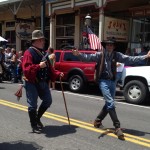Evidence-Based Decision Making: The Increasing Use of Research in our Criminal Justice System
There is a growing trend in the criminal justice field to integrate evidence-based decision making, or EBDM, into local justice systems. At its simplest, EBDM can be described as the practice of using what has been proven to work. It places the primary reliance upon current and sound research, rather than upon anecdotal information, guesswork, or solely the experience of an individual. While the use of evidence-based decision making is relatively new to the field of criminal justice, the healthcare industry has embraced EBDM for sometime.
The promise of evidence-based decision making is that it produces more consistent and better outcomes, as confirmed by the underlying research. In the criminal justice system, the benefits include the implementation of policies and practices that meet the goals of maximizing public safety, reducing the risk of reoffending, more appropriate allocation of limited resources, and reducing costs.
Wisconsin is at the forefront of the trend towards the introduction of EBDM into its criminal justice systems.

